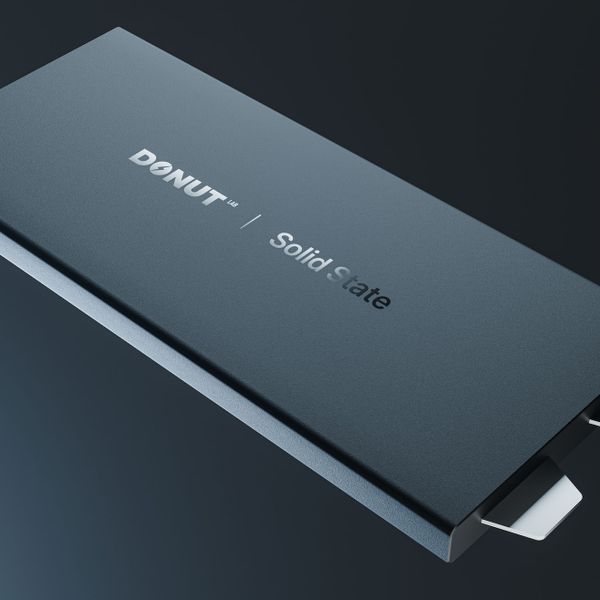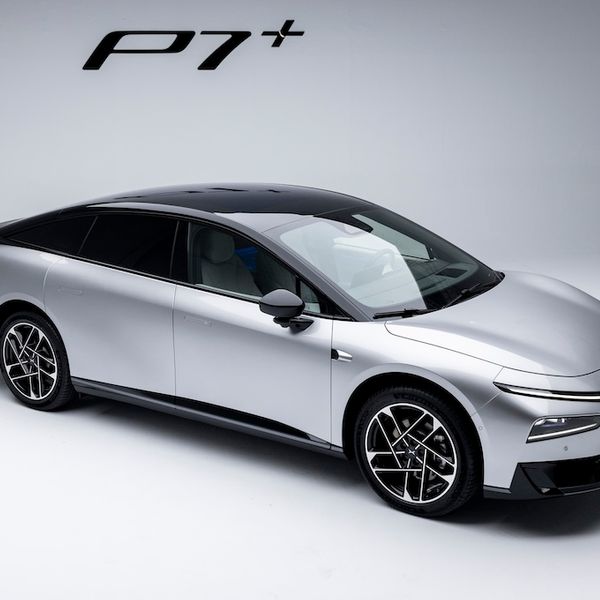Tesco is still the nation’s top stop for shoppers who want to charge their electric car, according to the latest Electrifying.com research. However, the picture among rivals is mixed, with Sainsbury’s is expanding its network rapidly, but Asda has seemingly abandoned electric car drivers.
Drivers should also keep an eye on costs – the difference between charging even a small car like a Corsa at a Lidl rather than Aldi is more than £8.
An Electrifying.com survey of 3,500 drivers said the most popular place to charge away from home is at the supermarket, with 37% giving this their vote.
Tesco now has 2,553 charging bays across 619 Tesco stores nationwide, making it the country’s largest retail electric vehicle charging network. The company has 809 larger shops across the country, excluding smaller ‘Express’ convenience stores.
Tesco says chargers at its stores now are found within a 10-minute drive for over 70% of the UK population. Most have a mix of 7kW, 22kW, 50kW and 75kW charging stations. Prices vary from 44p/kWh for the 7kW fast chargers to 69p/kWh for the 75kW rapids.
The network is run by Podpoint and sponsorship has switched from Volkswagen to Vauxhall, meaning that some buyers will get incentives if they purchase a Vauxhall electric car or van.
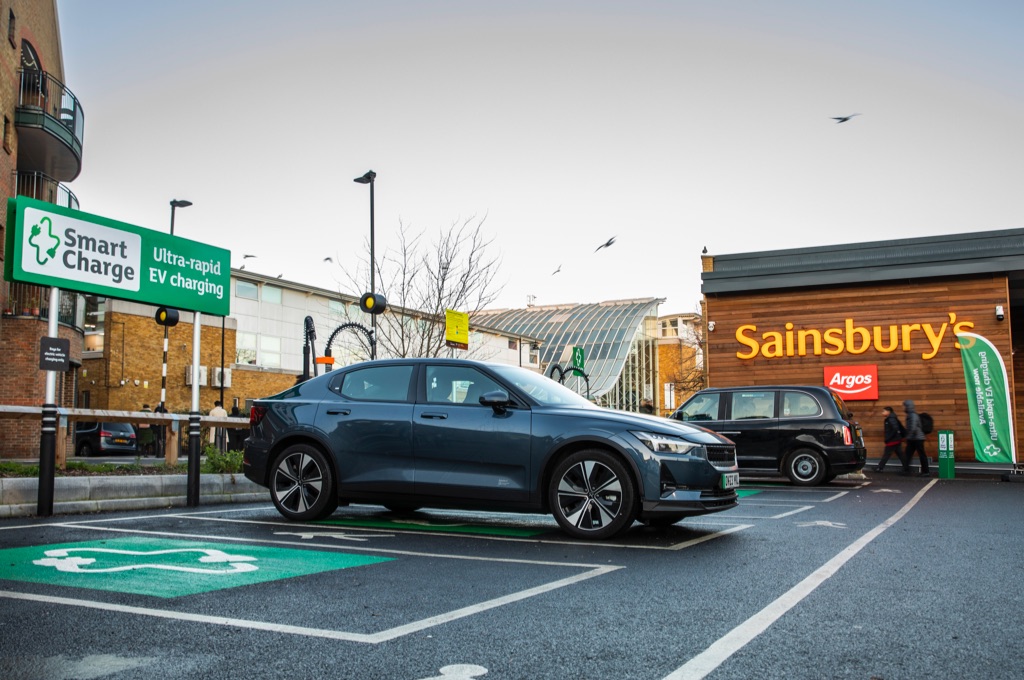
If you want a rapid charge, you’re more likely to find one at a Sainsbury's however. It has seen the biggest growth following the launch of its wholly-owned ultra-rapid network Smart Charge.
After installing just 53 units in 2022, the retailer now has almost 450 ultra-rapid (150kW-300kW) charging bays across 54 stores – and new charging hubs are being added to the Smart Charge network every month. This means it now has more ultra-rapid charging bays than any other UK supermarket.
It has promised there will be over 750 ultra-rapid charging bays rolled out across more than 100 stores by the end of 2024, putting Sainsbury’s in the top five providers of ultra-rapid charging in the UK.
The bays are open 24 hours a day, and almost all locations have at least six slots available, with large hubs offering as many as 18. The price is a flat rate of 75p/kWh, which is decent value for an ultra rapid (for comparison, Gridserve charge 79p and BP Pulse is 85p) but is pricy compared to slower DC costs.
Sainsbury’s is also the only supermarket to offer loyalty rewards on charging, with three Nectar points for every £1 spent.
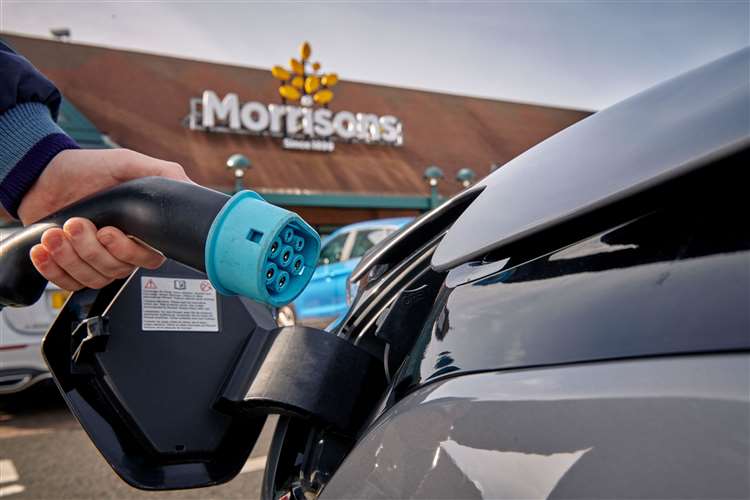
Morrisons has remained static with 413 devices at 69% of its 497 stores, 99% of which had rapid devices. However, it has big plans afoot after the Motor Fuel Group bought 337 Morrisons petrol stations attached to stores to build ultra-rapid charging hubs. This will see 800 ultra-rapid 150kW+ chargers installed in the first five years.
Lidl has 370 chargers at nearly a third of its 960 stores, with 300 of the offering rapid charging facilities. The company is transitioning them from the Pod Point App to the Lidl Plus app, which will mean payment is controlled by Lidl rather than a charge provider. As you might expect from Lidl, it’s cheap too. Paying through the app brings the price down to 62p/kWh for rapid DC charging and 40p for AC points.
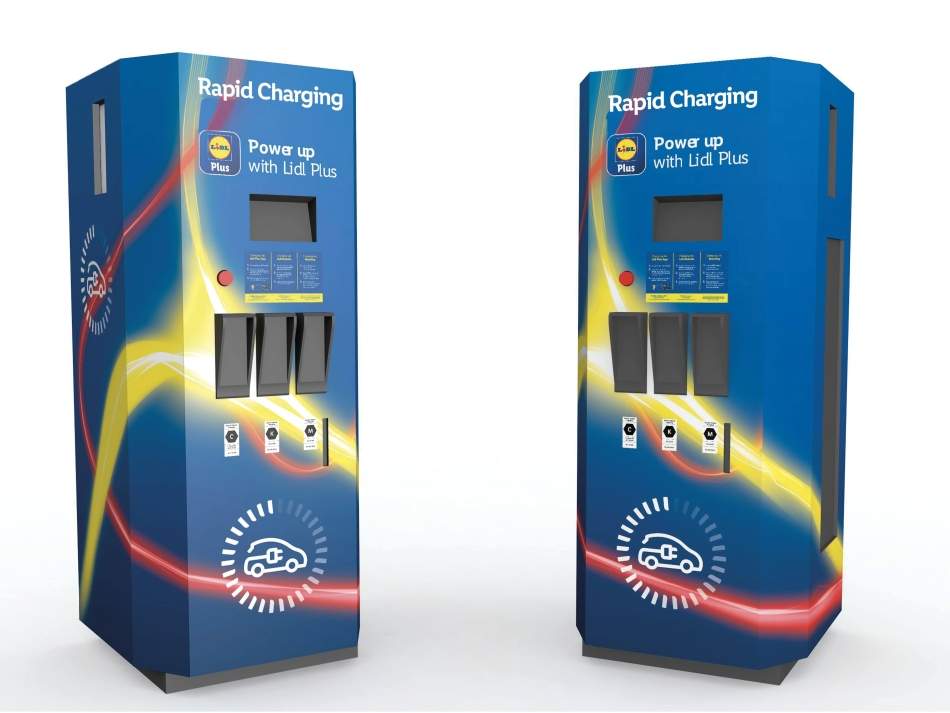
Its arch rival Aldi is lagging behind, offering EV charge points at around 18% of its stores across the UK, with 610 individual charge points. Some of these were recently fitted as part of a deal with Shell Recharge, which means they are on the pricey side – although prices vary, our sample suggested 85p/kWh is the normal. That means rapid charging a car like a Vauxhall Corsa Electric from 10-80% at Aldi instead of Lidl could cost an extra £8.05.
The real booby prize goes to Asda, however, which has deactivated the majority of its charging points after its contract with BP Pulse came to an end. This follows the acquisition of the supermarket chain by the EG Group, which owns a chain of fuel filling stations. The company declined to comment or give us any updated charger figures.








